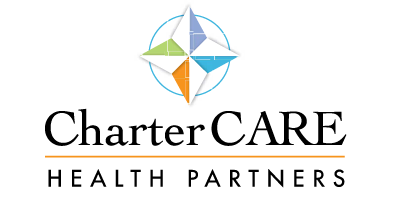Stroke Rehabilitation: What to Expect as You Recover
Stroke rehabilitation helps patients “relearn” basic skills lost due to damage to specific centers of the brain. The complications depend on the severity of the stroke, which in turn impacts what you can expect as you recover. However, when you participate in an individualized stroke rehabilitation program you will find you improve your outcomes. Here is what to expect during your stroke rehabilitation.
When Does Stroke Rehabilitation Begin?
Depending on your condition following the stroke, you can start as soon as 24 to 48 hours with your stroke rehabilitation. This is because the sooner you begin stroke rehabilitation, the better your chances are of regaining lost abilities and skills.
What Types of Stroke Rehabilitation are Available?
Both medical and technical advances continue to provide effective types of stroke rehabilitation techniques and treatments. However, the most common exercises you are likely to perform include:
- Motor-skill exercises
- Mobility training
- Constraint-induced therapy to improve limb function
- Range-of-motion therapy to ease spasms and improve range of motion
- Functional electrical stimulation for help re-educate weakened muscles
- Robotic technology to help regain strength and retrain your limbs using repetitive motions
From a technology standpoint, wireless technology has become popular, as has virtual reality. Patients can use computer-based therapies to simulate scenarios that help them recover. There are also therapies for cognitive disorders such as speech therapy. These treatments help you regain lost cognitive abilities that affect memory, processing, social skills, safety, judgment, and problem-solving.
Why is Psychological Evaluation Involved?
There is also an emotional element to your recovery. It can be difficult to cope with the sudden changes following a stroke that can leave you feeling isolated, angry, frustrated, depressed, etc. As a result, you might undergo tests to assess your mental state. Your doctors can recommend counseling or other treatments. Often patients find it helpful to join support groups while others might require medication such as antidepressants.
How Long Will Stroke Rehabilitation Take?
Like your treatment, the duration of your stroke rehabilitation depends on the severity of your complications. While some people might recover quite quickly, most tend to rely on treatment over a period of months. For the most severe stroke patients, they can be in stroke rehabilitation for years. As well, you should expect to see your treatment plan change over time. As you recover, the focus of your exercises and therapy will change to adapt to your improvements. This is a good thing, as it means your therapy is working.
Who Provides Stroke Rehabilitation?
Again, it will depend on the type of treatment you require. However, you will commonly work with a group of professionals focused on your rehabilitation including:
- Immediate access to Specialists such as neurologists, Pulmonary GI Cardiology
- Rehabilitation nurses
- Physical therapists
- Occupational therapists
- Speech and language pathologists
- Case managers
You will have a full team behind you to help you regain function and improve your quality of life.
How is My Stroke Rehabilitation Plan Determined?
Your plan is individualized to help you see the best possible outcomes. Considerations that will contribute to your plan include:
- Physical: Doctors consider the severity of your stroke and how it affected you both cognitively and physically.
- Emotional: Doctors will assess your mood and monitor your motivation and ability to remain committed to your home rehabilitation activities. There is also a consideration for how much support you have from friends and family which impacts your state of mind.
- Therapeutic: Your recovery is markedly improved in the early weeks and months of your treatment. Doctors will continue to monitor your treatment, make changes to adjust to your improvements (or possible weaknesses), and ensure you receive the level of therapy required.
Because rehabilitation can take months or even years, your condition and performance continue to impact the therapies you require.
Do I Need to Stay in Hospital for My Rehabilitation?
Although your stroke rehabilitation tends to start when you are in the hospital, you will most likely continue therapy in different settings including:
- Inpatient rehabilitation units: For more severe cases you might be scheduled at a facility associated with the hospital, as an inpatient before it is determined you can return home.
- Outpatient units: These facilities are located at a hospital or clinic, but you attend your appointments as an outpatient while living at home.
- Home: Almost all stroke patients will be given exercises they practice at home. However, these exercises are ideally performed in hand with clinic appointments where you can access specialized rehabilitation equipment.
Keep in mind that your insurance controls who qualifies for home-based therapy, so this can also impact where your therapy takes place.
Stroke Rehabilitation at SNERC
Here at Southern New England Rehabilitation Center, we are an acute care hospital with access to a complete array of specialists and diagnostics including lab MRI CT Vasc and more specifically for your care. Board-certified with over three decades of rehab experience, you'll receive daily assessments to stay on track with your recovery.
Contact Southern New England Rehabilitation Center (SNERC) today.
